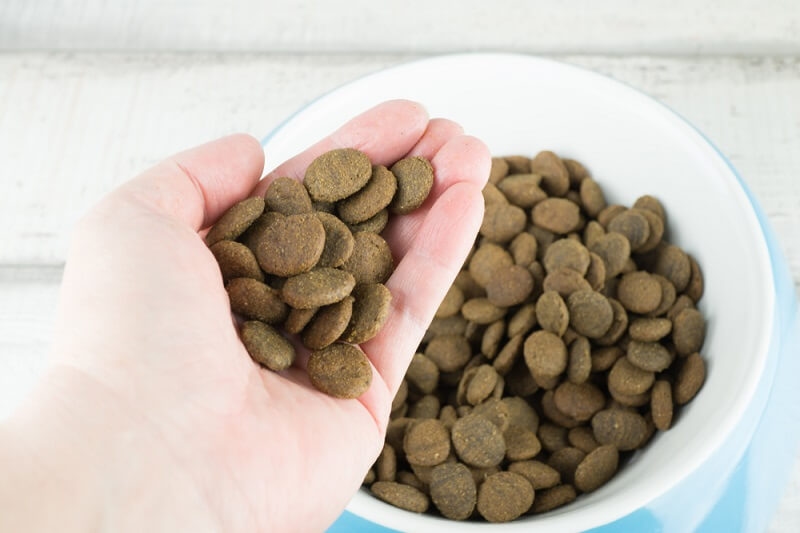Best Dog Food for Sensitive Stomach That Keeps Pets Healthy

It can be gut-wrenching to watch your dog suffer from digestive upset. Vomiting, diarrhea, gas, pain, and general discomfort leave you feeling helpless and your pup miserable. If your furry friend's tummy seems to be constantly delicate, you may find yourself on a search for the best dog food for sensitive stomachs. It can be a lot to navigate, so this hypoallergenic dog food guide aims to reduce complexity. Understanding how to identify triggers, know ingredients, and find affordable, sensitive-stomach dog food that works is our goal to help you return to that wagging tail.
Understanding the Signs of a Dog Sensitive Stomach
Before discussing foods, it’s essential to determine if your dog’s issues are due to a sensitive stomach or if something more serious is the underlying medical issue. Common symptoms to look out for include:
- Vomiting or regurgitation after eating or drinking, either frequently or only occasionally
- Diarrhea or loose stool that happens on a repeated basis
- Excess gas or excessive flatulence
- Gurgling sounds from the belly
- Loss of appetite or picky eating habits
- Lethargy or low energy levels
If your dog shows any of these symptoms, and they are persistent, your first and most crucial action should be to take your dog to a veterinarian. They might be able to determine if the issues are related to parasites, pancreatitis, or other illnesses. Once your dog is given a clean bill of health, you will be in a better position to look for reasonable dietary solutions for a comprehensive dog digestive care diet.
Common Culprits: What Upsets Your Dog's Stomach?
Basically, a chronic sensitivity in the digestive system is what an intolerance to ingredients in the dog's food amounts to. Once you understand the culprit, the solution is simple. There are some common offenders to consider.
- Proteins: Many dogs are allergic to beef, chicken, and/or dairy. Switching to a novel protein such as salmon, lamb, or duck can make a difference.
- Grains: Although most dogs digest grains without an issue, careful monitoring may reveal that some dogs cannot tolerate corn, wheat, or soy.
- Artificial Additives: These artificial colors, flavors, and preservatives can harm a sensitive digestive system.
- High Fat: Heavy/fatty foods are difficult to digest. They are also problematic for impending pancreatitis in dogs susceptible to pancreatitis.
- Overfeeding: Surprised! Simply digestible, too much too fast can upset the digestive system.
Your Blueprint for a Hypoallergenic Dog Food Guide

"Hypoallergenic" is a term often used in place of foods for dogs with sensitive stomachs, but the two terms are related but not quite the same. A hypoallergenic food is designed to replace and remove ingredients commonly eliciting allergic reactions. This hypoallergenic dog food guide is to provide some features to look for in a hypoallergenic dog food:
- Limited-Ingredient Diets (LID): These diets have limited ingredients (usually five to ten), making it easier to remove allergens.
- Novel Proteins: These are usually a protein source your dog has never eaten, such as kangaroo, rabbit, or venison. They are less likely to produce a reaction in a dog.
- Easily digestible carbohydrates: Ideally, you want carbohydrates that are easy to digest. Options such as oats, pumpkin, sweet potato, and peas, instead of sources such as corn or wheat.
- Prebiotics and probiotics: These "good" bacteria are essential for balance in a healthy gut microbiome, which is the basis for any effective dog diet for digestive health. They help dogs absorb nutrients and support a healthy immune system.
- High-quality ingredients: The recipe should use real, understandable ingredients, not ingredients of questionable quality or unknown purpose.
What Makes a Kibble Truly the Best Kibble for a Sensitive Stomach?
While wet food is available, most pet parents prefer dry kibble for convenience and dental benefits. So, what makes the best kibble for sensitive stomachs different? It all comes down to the formulation and manufacturing.
- Highly Digestible Formulas: The best kibbles are formulated for digestibility, which, in simple terms, means your dog's body can absorb more nutrients from less food. The additional benefits will be smaller, firmer stools and less waste.
- Specific Fiber Blends: The right balance of soluble and insoluble fiber is crucial. Ingredients like beet pulp, chicory root, and pumpkin are included to act as beneficial food for good gut bacteria and stabilize bowel movements.
- Gentle Processing: Some companies use a slow-cooking method or lower heat processing to preserve the kibble's nutrient integrity and make it easier to digest once it is in the stomach.
The Gold Standard: Vet-Recommended Dog Food for Sensitive Stomachs
When in doubt, trusting the experts is always a good idea. Vet-recommended dog food will include prescription diets or scientific brands that have undergone rigorous testing. Often, these diets are designed by veterinary nutritionists and backed by clinical studies. While usually they may command a higher price, they target complicated health problems such as severe food intolerances and inflammatory bowel disease (IBD). Asking your vet about vet-recommended dog food gives you a specialized formula for your dog's needs and often saves you money and heartache.
Balancing Budget and Belly: Finding Affordable Sensitive Stomach Dog Food
A common misconception is that adequate dog food has to break the bank. While specialized diets can be pricey, excellent options offer great value. The key to finding an affordable sensitive stomach dog food is to focus on the ingredient list and nutritional profile rather than just the brand name.
- Look for Value Sizes: Buying larger bags often reduces the cost per pound.
- Subscribe and Save: Many online retailers offer discounts for recurring deliveries.
- Compare Key Features: An affordable sensitive stomach dog food should still have the hallmarks of a good diet: a named novel protein (e.g., "salmon," not "fish meal"), prebiotics, and the absence of artificial junk.
Top Ingredients to Soothe and Support Digestion
As you evaluate different foods, keep an eye out for these gut-friendly ingredients that are hallmarks of a superior dog digestive care diet:
- Pumpkin: Excellent source of soluble fiber for use with diarrhea and constipation.
- Sweet Potato: Easily digestible and full of vitamins, moisture, fiber, and antioxidants.
- Prebiotics (FOS, MOS): These act as food for the beneficial bacteria in the gut.
- Probiotics (Bacillus coagulans, Enterococcus faecium): The live beneficial bacteria in the gut.
- Omega-3 Fatty Acids: Fish oil provides this anti-inflammatory source to soothe the irritated digestive tract.
- Ginger: A natural ingredient known to help settle nausea and ease inflammation.
Making the Switch: A Gradual Transition is Key
Once you've selected a new food, patience is paramount. Changing your dog's diet is a surefire way to cause more stomach upset. Follow this gradual transition guide over 7-10 days:
- Days 1-2: 25% new food, 75% old food.
- Days 3-4: 50% new food, 50% old food.
- Days 5-6: 75% new food, 25% old food.
- Day 7 onward: 100% new food.
Monitor your dog closely during this period. A slight change in stool is normal, but significant regression may indicate that you must slow down the transition or reconsider your choice.
Conclusion
Finding the best dog food for a sensitive stomach requires patience, observation, and detective work. By understanding common triggers, prioritizing high-quality, easily digestible ingredients, and transitioning slowly, you can find a formula—a vet-recommended dog food or an affordable sensitive stomach dog food—that brings your beloved pet lasting comfort and health. Remember, a happy gut leads to a happy, vibrant dog.
This content was created by AI

